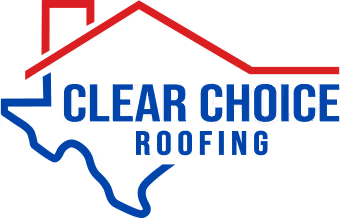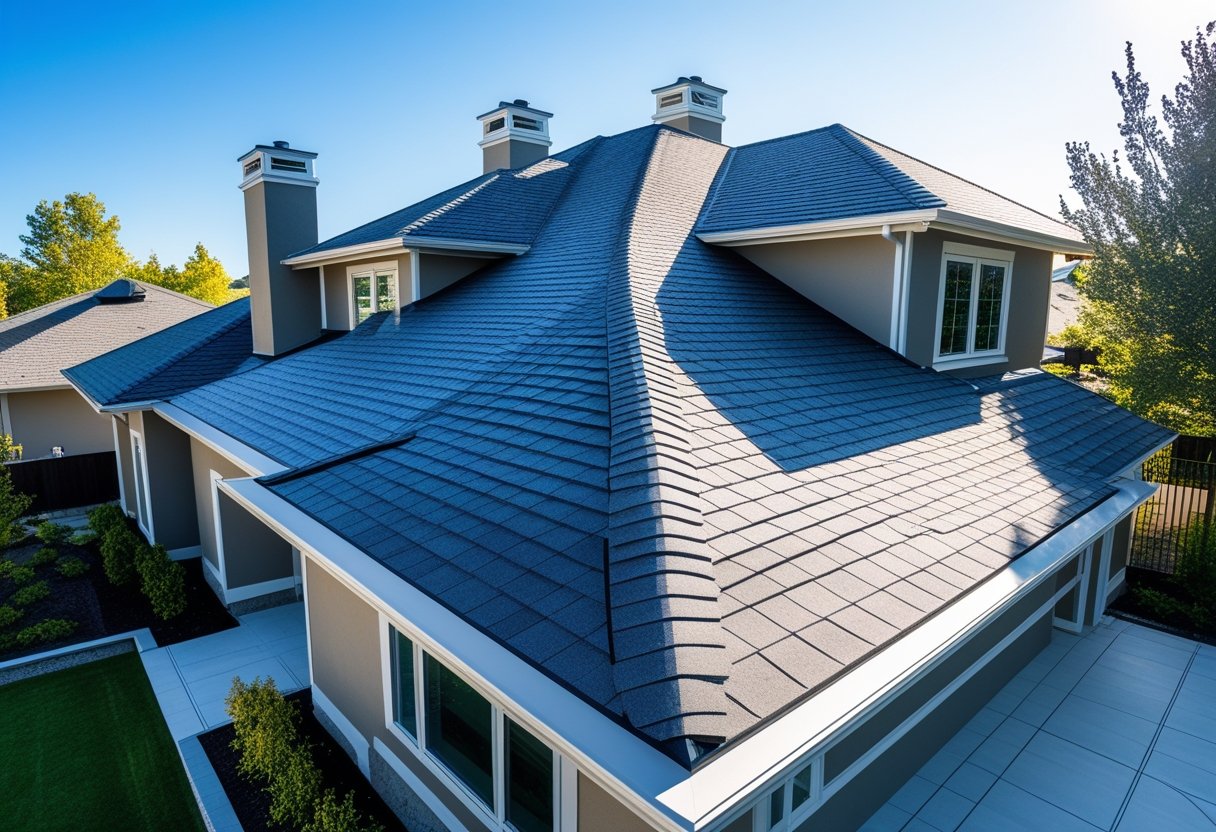Choosing the right roofing warranty can save you money and stress. A good warranty protects you from costly repairs and covers defects in your roofing materials and workmanship for a set period.
Knowing what type of coverage you need helps you make a smart decision. Pick a warranty that fits your home's needs.
When you pick a warranty, check what is covered and how long it lasts. Understand what you need to do to keep the warranty valid, like routine maintenance.
Pick a trusted contractor that offers strong warranties, such as Clear Choice Roofing. This gives you confidence in your roof’s future.
If you live in areas with tough weather or plan to sell your house, choosing the right warranty is important. Understanding warranties helps you avoid surprises and keeps your roof in great shape.
Understanding Roofing Warranty Types
Knowing the types of warranties helps protect your roof and your wallet. Focus on who covers what, how long the coverage lasts, and what could void the warranty.
Manufacturer Warranties
The company that makes the roofing materials provides these warranties. They usually cover defects like broken shingles or fading over time.
Most manufacturer warranties last between 20 to 50 years. The coverage might only apply to specific materials or conditions.
Some warranties protect against leaks caused by material failure but don’t cover damage from storms or accidents. If you use a lesser-known brand or low-quality materials, the warranty may not be as strong or long-lasting.
Always ask for the exact terms and get a copy of the warranty before work starts.
Workmanship Warranties
Workmanship warranties cover how your roof was installed. The roofer is responsible for this, not the manufacturer.
These warranties usually last from 1 to 10 years, depending on the contractor. They protect you if your roof leaks or has issues due to incorrect installation.
Since workmanship warranties depend on the roofer, work with a trusted contractor. Companies like Clear Choice Roofing provide warranties that back their work.
Ask exactly what the warranty covers and if it includes repairs or replacement.
Extended Coverage Options
You can sometimes pay extra for longer or broader warranty coverage. These extended warranties might cover more, like storm damage or repairs beyond normal limits.
Extended coverage often requires maintenance and inspections. You may also need to use specific materials or contractors approved by the warranty provider.
Before choosing extra coverage, compare costs and benefits. Make sure you understand what is and isn’t covered.
Key Factors to Evaluate
When choosing a roofing warranty, pay attention to how long it lasts, what it covers, and if you can transfer it to a new homeowner. These details affect your protection and your home's value.
Coverage Duration
The length of your roofing warranty matters. Typical coverage can range from 5 to 50 years, depending on the materials and the contractor's policy.
A longer warranty protects you against defects or problems for many years. Check if the warranty covers both materials and labor.
Some warranties cover materials longer than labor. Know these time frames so you won’t face unexpected repair costs later.
What Is and Isn't Covered
Not all warranties cover the same things. Most include defects in materials and installation issues.
Damage from storms, accidents, or lack of maintenance usually isn't covered. Look for limits and exclusions.
Some warranties won’t cover damage from hail or wind, even after installation. Knowing what’s covered helps avoid surprises if you need a claim.
Transferability to New Owners
A warranty that transfers to a new owner increases your home's resale value. If you sell your house, the buyer can benefit from the remaining warranty.
Check if the transfer requires fees or paperwork. Some warranties allow free transfer once, others may limit the number of transfers.
Comparing Roofing Warranty Providers
When you look at roofing warranties, think about who is backing the warranty and how reliable they are. The size of the contractor and the roofing material maker both matter.
Local vs National Contractors
Choosing between a local or national contractor can change your warranty experience. Local companies like Clear Choice Roofing know your area’s climate and building codes.
They are more likely to be available for quick repairs or to answer questions. Local contractors often stand behind their work personally.
If you have an issue later, you can expect a quick response. You also support your community when you choose a local business.
National contractors may offer big-name warranties but could be slower to respond. Their teams might change often, making consistency a challenge.
Check reviews and ratings to see how well they honor warranties.
Manufacturer Reputation
The roofing material’s manufacturer plays a big role in your warranty’s value. Look for brands known for quality and strong customer support.
For example, Owens Corning—the manufacturer Clear Choice Roofing partners with—is one of the most trusted names in roofing. Manufacturers with designations like Owens Corning’s Platinum Preferred Contractor offer some of the strongest warranties.
These warranties usually cover materials and may include labor if installed by approved contractors. Read the fine print to understand what is covered, for how long, and what you must do to keep the warranty valid.
Choosing a reliable manufacturer helps protect your home for many years.
Essential Questions to Ask
When choosing a roofing warranty, understand what is covered and how to make a claim. Asking the right questions helps you avoid surprises.
Exclusions and Limitations
Ask what conditions or damages are not covered. Many warranties do not cover issues caused by lack of maintenance, storm damage, or improper installation.
Check if regular roof inspections or maintenance are required. Missing these steps can void your coverage.
Find out if certain parts of the roof or materials are excluded. Some warranties may only cover roofing materials, not labor costs for repairs.
Write down any limits on coverage length and whether warranties are transferable. Knowing these details helps you choose a warranty that fits your needs.
Claim Process Details
Ask how to file a claim and what paperwork is required. Know exactly who to contact and what steps to take after damage occurs.
Check if the company offers help with insurance claims. Support during this process can save you time and frustration.
Find out how long it takes for claims to be reviewed and repairs to start. Quick, clear communication is a sign of good service.
Ask if the warranty covers both materials and labor for repairs. Knowing this upfront ensures you won’t face unexpected costs.
Common Roofing Warranty Pitfalls
When choosing a roofing warranty, know what could make your coverage useless and what details to watch out for. Paying attention to these issues helps you avoid losing protection.
Voiding the Warranty
You can void your warranty if you don’t follow certain rules. For example, if you or another contractor work on the roof without the original installer’s permission, this might cancel the warranty.
Skipping maintenance or ignoring small repairs can cause problems that the warranty won’t cover. Keep your roof clean and check for damage regularly.
Using improper materials during repairs can also void your warranty. Always use products that meet the original roof’s standards and get approval if you want someone else to do repairs.
Misunderstanding Fine Print
Roofing warranties often include terms that are easy to miss. Some warranties cover only materials but not labor, so you might pay to fix the roof even if materials are replaced for free.
Watch for time limits, like separate periods for materials and labor coverage. Some warranties require you to register your roof or provide proof of installation.
Many warranties exclude damage caused by storms, falling trees, or improper use. Knowing what is and isn’t covered helps avoid surprises when you file a claim.
To keep your warranty valid, follow all instructions carefully and ask questions before agreeing to any work.
Making the Final Decision
When choosing your roofing warranty, focus on what matters most to you. Look for coverage length, what damages are included, and any conditions that might void the warranty.
Make sure you understand the fine print before you agree. Pick a contractor who stands behind their work and offers ongoing support.
Here’s a quick checklist:
- Warranty length: How many years does it last?
- Coverage: Does it cover material defects, labor, or both?
- Exclusions: What might cause the warranty to be void?
- Maintenance: Are you responsible for regular upkeep?
- Contractor reputation: Are they trusted in your area?
At Clear Choice Roofing, you get one of the best warranties in the industry because we are an Owens Corning Platinum Preferred Contractor. You can rely on quality materials and skilled work.
Choosing a local roofer like Clear Choice means you have a team familiar with Austin’s weather and ready to help if you ever need warranty service. You want peace of mind, and that starts with picking the right warranty from a roofer you can trust.
Frequently Asked Questions
When choosing a roofing warranty, focus on what the warranty covers, its length, and any rules you must follow to keep it valid. Knowing what questions to ask and understanding common exclusions can help you make the best choice.
What should I consider when comparing different roofing warranties?
Look at what the warranty covers—materials, labor, or both. Check the length of coverage for each part.
See if the warranty requires regular inspections or maintenance to stay valid.
How can I determine the reliability of a roofer's workmanship warranty?
Ask for proof of past work and customer reviews. A trusted roofer will stand behind their work and explain the process clearly.
Check if they are certified by reputable manufacturers.
What are common exclusions to look out for in roof warranties?
Warranties often exclude damage from storms, accidents, or neglect. Using unapproved contractors or leaving the roof unmaintained can void your coverage.
How long does a typical roofing warranty last?
Material warranties can last 20 to 50 years, depending on the product. Workmanship warranties are usually shorter, often 5 to 10 years.
Always confirm exact terms with your roofer.
What questions are essential to ask a roofer when discussing warranty options?
Ask how long the warranty lasts, what it covers, and what can void it. Find out if routine maintenance is required and if repairs will be done quickly.
Make sure you get all details in writing.
Why might a roof warranty be voided, and how can I avoid it?
Skipping regular roof maintenance or repairs can void a warranty.
Using unlicensed contractors or ignoring warranty terms will also cause problems.
Follow all guidelines and schedule inspections as needed to keep your warranty safe.



